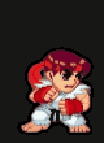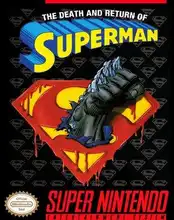Remember being a kid, cape fashioned from a towel, leaping off the sofa to save the living room from imaginary villains? Video games offered the next best thing: the chance to be your favorite hero. From the earliest days of gaming, superhero games have let us swing, fly, punch, and blast our way through digital worlds, living out those comic book fantasies.
While today's blockbusters boast cinematic graphics and sprawling open worlds, there's a special kind of charm and challenge found in the retro era. Let's pull back the dusty curtain of time and revisit some of the classic comic book capers that captured our imaginations on consoles and PCs of yesteryear.
The Wild West: Early Pixelated Heroes
Back in the late 70s and early 80s, translating powers and costumes into chunky pixels was a challenge, to say the least. Atari 2600's Superman is often cited (sometimes unfairly!) for its simplicity, but it was an early attempt to put a hero in our hands.
The NES era brought more recognizable forms. Sunsoft's Batman (based on the 1989 movie) was a surprisingly solid action-platformer with moody graphics and tight controls, proving licensed games could be good. Early X-Men titles and other heroes popped up, often with steep difficulty curves that felt like a supervillain's trap!
The 16-bit Boom: When Heroes Got Serious
The Super Nintendo and Sega Genesis generations were arguably a golden age for licensed beat 'em ups and platformers. This is where many iconic superhero games took shape.
- Teenage Mutant Ninja Turtles: Turtles in Time: While technically heroes (in a half shell!), this Konami arcade port was a staple. Brawling through time as the Turtles was pure co-op joy, especially that move where you slam enemies into the screen! The SNES version is a beloved classic.
- Batman Returns (SNES): Konami nailed the gritty Tim Burton film vibe with this beat 'em up. It felt like stepping right into the movie.
- The Adventures of Batman & Robin (SNES): Capturing the animated series' distinct look and feel, this game offered challenging platforming and action that felt true to the source material.
- Marvel vs. Capcom Series: Starting in the arcade and coming to consoles like the PlayStation and Dreamcast, these chaotic fighting games were a dream come true for fans wanting to pit their favorite heroes against each other (and Capcom icons). Pure, over-the-top fun.
This era saw developers really figure out how to translate powers and team-ups into engaging gameplay, even within the confines of 2D sprites.
Stepping (Awkwardly?) into 3D
The jump to 3D on the PlayStation, Nintendo 64, and PC was a mixed bag for superhero games. For every solid title, there seemed to be a clunky one.
- Spider-Man (PS1, N64, PC): This game was a big step forward, offering web-swinging that felt fluid (for the time!) and a story featuring a host of villains. It really made you feel like Spidey.
- X-Men: Mutant Academy (PS1): A fighting game that let you control classic X-Men in 3D arenas. Simple but fun fan service.
Translating complex movements and powers to early 3D engines was tough, leading to some memorable glitches and control quirks alongside genuine innovation.
The Early 2000s: RPGs and Open Worlds Emerge
The PlayStation 2, Xbox, and GameCube era brought more power and ambition to superhero games. We started seeing deeper RPG elements and open-world concepts.
- X-Men Legends (PS2, Xbox, GameCube): This action RPG let you control a team of X-Men, leveling up powers and exploring famous locations. It was like a playable comic book storyline with friends. This series paved the way for the successful Marvel Ultimate Alliance games.
- Ultimate Spider-Man (PS2, Xbox, GameCube, PC): Building on the PS1 success, this cel-shaded gem offered a more expansive New York to web-swing through and even let you play as Venom. The movement felt fantastic.
- Hulk: Ultimate Destruction (PS2, Xbox, GameCube): This game truly captured the feeling of being the Hulk – pure, unrestrained smashing in a sandbox environment. It was incredibly satisfying.
These titles showed that superhero games could offer more than just linear action; they could build worlds and character progression.
Why We Love 'Em: More Than Just Pixels
Beyond the gameplay, the nostalgia factor for these retro superhero games is huge. They were often tied to the cartoons we watched, the comics we read, and the action figures we played with. Playing them was an extension of that fandom, a way to connect with characters we adored.
Even the notoriously difficult or clunky ones hold a special place in our hearts because they were our attempts to don the cowl or the mask in the digital realm.
Where to Find These Classics Today
Finding and playing these old gems can be part of the fun!
- Digital Storefronts: Services like GOG.com occasionally re-release classic PC titles, sometimes bundled and updated for modern systems.
- Emulation: For many console classics, emulation is the primary way to revisit them. For old PC superhero games, DOSBox is your best friend for running those finicky DOS-era titles.
- Collecting: Hunting down original cartridges and consoles is a hobby in itself, albeit an increasingly expensive one for sought-after titles.
FAQ About Retro Superhero Games
What is considered the first superhero video game?
The 1978 Atari 2600 game based on Superman is widely considered the first video game featuring a licensed superhero.
Are retro superhero games still fun to play today?
Absolutely! While graphics and controls might be dated, many offer solid gameplay, challenging design, and a huge dose of nostalgia. Games like Turtles in Time, Batman (NES), and X-Men Legends hold up well.
How can I play old superhero PC games like the DOS ones?
Many classic PC superhero titles from the DOS era can be played using an emulator like DOSBox, which recreates the old operating system environment on modern computers. Some are also available DRM-free on digital platforms like GOG.
The Enduring Legacy
From simple pixelated sprites to early 3D polygons, the history of superhero games is a journey through gaming evolution itself. These retro titles, whether flawless masterpieces or charmingly flawed attempts, laid the groundwork for the incredible experiences we have today. They remind us of a time when donning a digital cape felt like stepping into a truly new and exciting world, one pixelated punch at a time.

